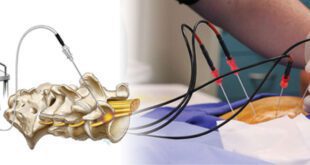
Kirk Kirpatrick, and Elizabeth’s daughter Graysen
Left untreated, alcoholism can lead to permanent brain dysfunction, disabilities, chronic pain, disease states, and death. The cumulative effects of drinking are the most damaging, but even the short term effects can be detrimental due to decreased inhibitions, blackouts, and slowed reaction times.
When alcohol enters the stomach, it moves through the small intestine and is then dispersed into the bloodstream. The liver attempts to break down the alcohol and eliminate it from the body through sweating, breathing, and through waste. The problem is that the liver is only capable of breaking down small amounts of alcohol, so the remaining amount is infiltrated into the organs and soft tissue. This trapped alcohol is what causes peripheral nervous system (PNS) and central nervous system (CNS) adverse reactions, which is explained in detail below.
Alcohol’s Effects on the Body
1. Liver Damage: Since the liver has to work overtime to try to naturally detox the body, long term liver damage and diseases like cancer or cirrhosis are prominent in drinkers.
2. Heart & Vascular: Alcohol consumption is a leading cause of cardiovascular diseases such as heart attacks and strokes.
3. Infections: Alcohol inhibits the body’s ability to fight off bacterial and viral infections.
4. Stomach & Intestinal Disorders: causes ulcers, diarrhea, bloating and leaky gut syndrome.
5. Pancreatitis: Excess glucose and alcohol leads to inflammation of the pancreas and can lead to cancer.
6. Sexual Health: Alcohol causes erectile dysfunction and vaginal atrophy.
7. Neuropathy: Nerve damage from excessive alcohol consumption may lead to numbness and tingling in the extremities.
8. Coordination: Balance issues may arise from lack of coordination, muscle atrophy, and muscle cramping.
9. Cancer: Drinking alcohol causes throat, mouth, esophageal and breast cancers.
10. Bones: Alcohol causes osteoporosis in men and women.
11. Diabetes: An alcoholic’s organs are often impaired, and glucose levels are uncontrolled, leading to diabetes.
12. Unhealthy Weight: Alcohol in excess causes both weight gain and weight loss depending on the person’s habits such as eating and energy levels during and after episodes of drinking and their overall health.
13. Eyesight: Vision issues like long term blurry, double or optical nerve damage are related to alcoholism.
Alcohol depresses the central nervous system and slows down the neurotransmitter GABA; this causes sluggish movement, slurred speech, and slower reactions. If a person has a mental condition like depression, anxiety, bipolar disorder, or PTSD, alcohol will exacerbate these disorders and may cause severe effects on the brain long term.
Alcohol’s Effects on the Brain
1. Alcohol shrinks the brain
2. Causes decreased gray matter
3. Impairs memories
4. Inhibits mental performance (learning, memory, recollection, processing)
5. Behavioral changes (anger frustration, moodiness)
6. Hallucinations
7. Slurred speech (short and long term)
8. Social withdrawal
9. Psychosis
10. Wernicke-Korsakoff syndrome (alcohol-related dementia)
11. Interrupts Sleep
12. Sleep apnea (stop breathing)
Your New Life Starts Today
Riverside Recovery is an addiction treatment center for men and women, offering a full continuum of care for people suffering from addiction and co-
occurring mental health disorders. The spa-like facility is modern, bright, and along with traditional methods, they offer a mind, body, and spirit healing journey that is unparalleled.
Riverside Recovery focuses on the long run, not just one stage of your recovery, providing multiple levels of care to help you move through treatment and prepare for independent life. Their programs include detox, residential, day/night and outpatient options, ensuring that you enter and leave treatment at the level of care that is best for you. Riverside Recovery’s continuum of care is designed to provide everything you need to rebuild your health, restore your confidence, and create a foundation for lasting recovery.
To find out more, please visit rrtampa.com or call (813) 575-4171.
Riverside Recovery
4004 N Riverside Dr.
Tampa, FL 33603
(813) 575-4171 | rrtampa.com
 Central Florida Health and Wellness Magazine Health and Wellness Articles of the Villages
Central Florida Health and Wellness Magazine Health and Wellness Articles of the Villages


